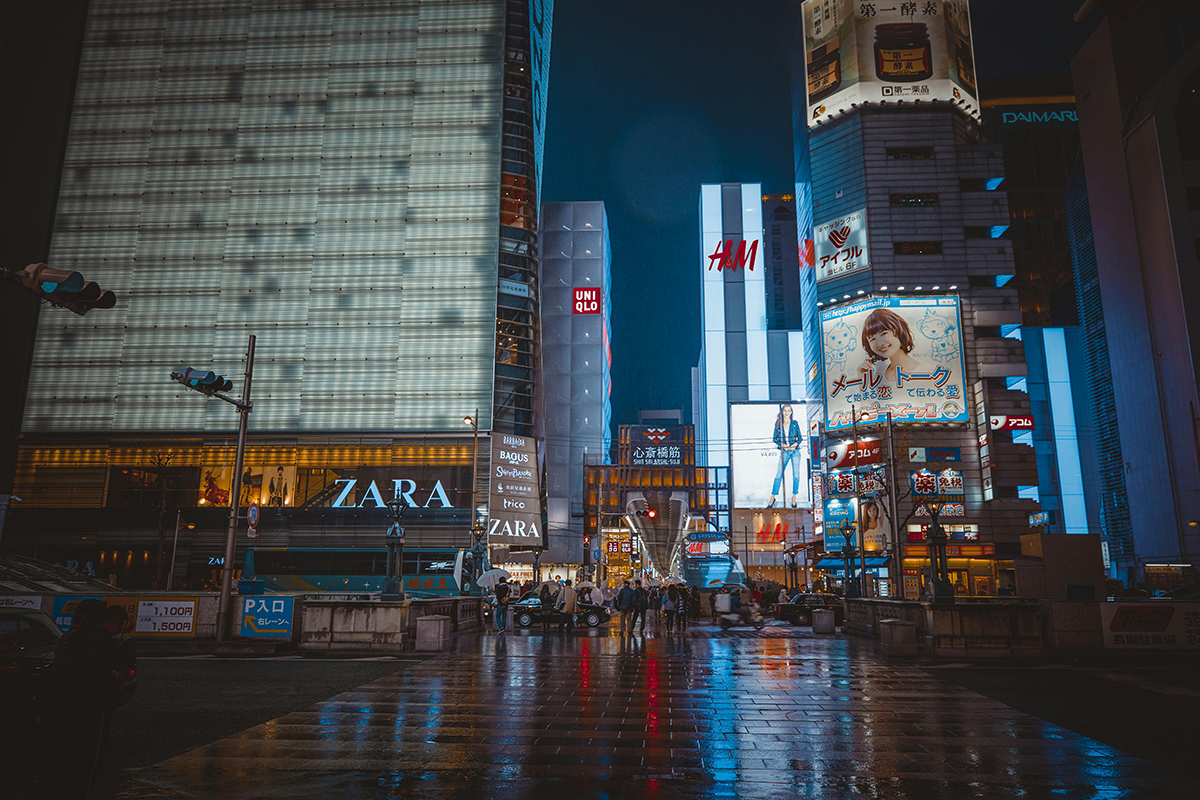Reputation Management
Effortlessly and accurately track the web and social network impact of your brand
Retour
Solutions
Reputation
Reputation Management
Effortlessly and accurately track the web and social network impact of your brand
Crisis Communication
Prepare, manage, and respond effectively to crises on social media and beyond
Leadership Advocacy
Amplify your leaders' voices to build trust and influence across key audiences
Influence
Trend Research
Uncover emerging trends to keep your brand ahead of the curve
Identifying Influencers
Find the voices that matter most to your audience and align with your brand goals
Campaign Tracking
Monitor, measure, and optimise your campaigns in real-time for maximum impact
Strategy
Competitive Intelligence
Gain actionable insights into your competitors’ strategies and performance
Industry Insights
Stay informed with real-time analysis of your industry’s landscape and shifts
Cyber Threat & OSINT
Detect and mitigate cyber threats with cutting-edge open-source intelligence
Retour
Why Visibrain
Why Visibrain
Our Coverage
The best coverage across the web and social networks
Our Technology
Our intuitive interface uses cutting-edge technology
Our Support
Our team is with you every step of the way
Featured
5 Easy Steps to choose the Right Social Listening Tool

Learn more
Retour
Clients
Our clients
Brands
Visibrain for brands
Institutions & Local Authorities
Visibrain for institutions and local authorities
Agencies
Visibrain for agencies
Success Stories
Discover how our clients use Visibrain
Client stories
How LVMH is using LinkedIn monitoring to boost its influence with Visibrain

Read the case study
Retour
Resources
Resources
Blog
Stay up to date
White Papers
Studies, industry analysis and advanced insights
Case studies
Our client stories
Help center
Guides and resources for users
Newsletter
Stay up to date with the latest Visibrain news!
Webinars
Our upcoming webinars.
Our Last Study
Visibrain Template: Brand Reputation Report

Download the full guide
Retour
About

Trends
16/06/2025

Sophie von Mensenkampff
Content Manager
Criticism of fast fashion giants has been growing for several years on lifestyle-oriented social platforms such as TikTok, Instagram and YouTube. But more recently, these conversations have also made their way to LinkedIn. The platform is seeing a diversification of its user base, a broadening of topics, and a reinvention of its dynamics. One of the new themes gaining traction is sustainable fashion. More and more voices are speaking out, movements are forming, and LinkedIn is now emerging as a genuine space for discussion and mobilisation against fast fashion.
So, how is this movement gaining momentum on LinkedIn?
To answer that question, Visibrain, the social listening tool, takes a closer look at the conversations taking place, the communities driving them, and the brands most frequently mentioned.
Long confined to lifestyle-focused social networks, conversations around fast fashion are now making their way onto LinkedIn. This topic, which sits at the crossroads of environmental concerns, ethics, and the circular economy, is increasingly engaging users, professionals, organisations, brands, influencers, and even political figures.
Traditionally a platform for professionals, businesses and corporate topics, LinkedIn is now witnessing its members take hold of the issue, giving rise to a genuine collective debate.
In just 15 days, more than:
A clear sign that beyond traditional spheres, a growing number of individuals, professionals and organisations are taking up the issue and engaging their communities.
It’s worth noting, by way of comparison, that while CSR has long been one of the leading topics on LinkedIn, fast fashion is emerging as an almost equally powerful driver of engagement. As shown in the reaction timeline below, engagement with fast fashion-related content (in blue) and CSR (in yellow) is nearly neck and neck. During key moments , such as the proposed anti–fast fashion bill in early June, fast fashion even outpaced CSR in terms of engagement. A strong signal that this issue is gaining serious attention, even on a platform with a professional focus.

Around this topic, various communities are actively mobilising. Beyond experts in the circular economy, responsible fashion, and ecological impact, other voices from diverse fields are also speaking out.
At the forefront, Yann Rivoallan, President of the French Federation of Women's Ready-to-Wear, stands out as the most influential figure. His posts, sharing accounte of his meeting with the Minister responsible for Commerce, the Senate's reintroduction of a ban on advertising for giants like Shein, and the adoption of the anti fast-fashion law, rank among his most engaging contributions
Alongside him, respected experts such as Maud Sarda, Jean-Marc Jancovici, and Clementine Colin Richard also feature prominently in this ranking.
Other business leaders have also joined the conversation, including Nicolas Houzé, CEO of Galeries Lafayette and BHV, Dominique Schelcher, CEO of Coopérative U, and Frédéric Mugnier, co-founder of the brand Faguo.
Figures from the media and influencer spheres, such as Juliette Quef, president of the media outlet Vert, and content creator Gaetan Gabriele, also rank among the most influential voices.
This diversity of engaged profiles, and their cross-sector reach, reflects the growing mobilisation on LinkedIn.

Many whistleblowers are now using LinkedIn to share news, data and strong positions on the fast fashion industry, notably the top three figures in the ranking: Yann Rivoallan, Maud Sarda and Jean-Marc Jancovici.
Their committed posts help inform and raise awareness among professional communities about the social and environmental challenges facing the industry:

LinkedIn is now establishing itself as a key space for expression and mobilisation against fast fashion, where numerous associations, media outlets and collectives are speaking out to denounce the industry’s excesses.
Engaged media such as Business of Fashion, and The Good Goods are among the most active, regularly alerting their communities with data, investigations and analysis on the social and environmental impact of the textile industry. Luxury second-hand giant Vestiaire Collective has also and continues to communicate on the topic
The French Senate has also made its mark with its LinkedIn communication around fast fashion, adopting an educational tone. Through posts such as “Anti–fast fashion law: why this bill?”, “Why fight fast fashion?”, and other explanations of the bill’s key issues, the institution has gathered over 130 reactions, a sign of the growing interest among LinkedIn communities in societal topics, even when raised by institutional voices.

Through media appearances by association leaders, direct calls-out on LinkedIn, sharing of news, and educational posts about legislation, organisations campaigning against fast fashion are using a variety of formats and angles to raise awareness among platform members.
These movements, able to directly challenge brands, amplify awareness campaigns, and highlight questionable practices, can quickly expose companies and institutions to negative publicity.

LinkedIn is increasingly emerging as a new and sensitive space for crisis management, where committed statements can quickly gain traction. This shift makes it essential to implement a dedicated active monitoring strategy for the platform to anticipate high-risk conversations, understand engagement dynamics, and identify both threats and opportunities for brands and organisations.
Conversations around fast fashion on LinkedIn are centred on several key themes. Slow fashion and responsible consumption are widely promoted, with hashtags such as #StopFastFashion and #EthicalFashion (highlighted in green in the hashtag cloud below). Innovations and new technologies in the fashion industry are also attracting attention, particularly initiatives aimed at reducing environmental impact (shown in purple in the cloud).
France's anti–fast fashion bill is also emerging as one of the most widely shared topics, often accompanied by analysis and strong opinions (highlighted in pink in the cloud).
Another strong trend emerging in the conversations is the analysis of major fast fashion brands’ strategies, which are being called into question. This is reflected in the use of hashtags such as #retailstrategy, #fashionbusiness and #brandstrategy (highlighted in blue).
Finally, several brands are at the heart of the conversation, including Shein, Temu and Zara, which appear in orange in the cloud below.

Du côté des marques, plusieurs grands noms ressortent nettement des conversations autour de la fast fashion sur LinkedIn. Shein, comme mentionné plus haut, domine largement le classement avec 20% de mentions. Elle est suivie, à égalité, avec Zara et Temu, au centre de 8% des discussions.
Derrière ces trois marques, H&M (5% des conversations) et Primark (2% des discussions) restent également très présentent dans les débats associés à la responsabilité environnementale sur LinkedIn.
%20(1).png?width=578&height=587&name=Most%20mentioned%20fast%20fashion%20brands%20on%20LinkedIn%20(by%20%25)%20(1).png)
Zara, which ranks second in the list of most-mentioned brands, recently faced criticism on LinkedIn for its 50th anniversary campaign. One example is a post by Maud Sarda, who commented: “You may have seen this Zara film featuring 50 iconic models to celebrate its 50th anniversary? Well, 50 years of fast fashion is certainly something to celebrate!!”, Her post garnered 829 reactions.
Today, LinkedIn is no longer just a platform for promotions, announcements and success stories. In 2025, it has become a playing field for whistleblowers. Call-outs, investigations, key figures, these committed voices are gaining ground and now pose a growing reputational risk for organisations, brands and institutions.
The recent VivaTech 2025 case is a clear example. Victoire Satto, founder of the media outlet The Good Goods, publicly called out the event’s organisers in a LinkedIn post, denouncing Shein’s participation in the 2025 edition of the trade show. Following swift mobilisation from her community and other LinkedIn users, VivaTech quickly announced that the fast fashion giant would be removed from its line-up.
Victoire Satto’s follow-up post sharing the decision received over 3,300 reactions, a clear sign that LinkedIn has become a powerful strategic tool for raising awareness and shaping public opinion.

Original article by Marie Guyomarc’h, adapted and translated by Sophie von Mensenkampff
NEWSLETTER
Subscribe to Visibrain's newsletter
Get social listening content directly in your inbox!
NewsletterNewsletter
.png?width=1090&height=1330&name=CTA%20newsletter%20(1).png)